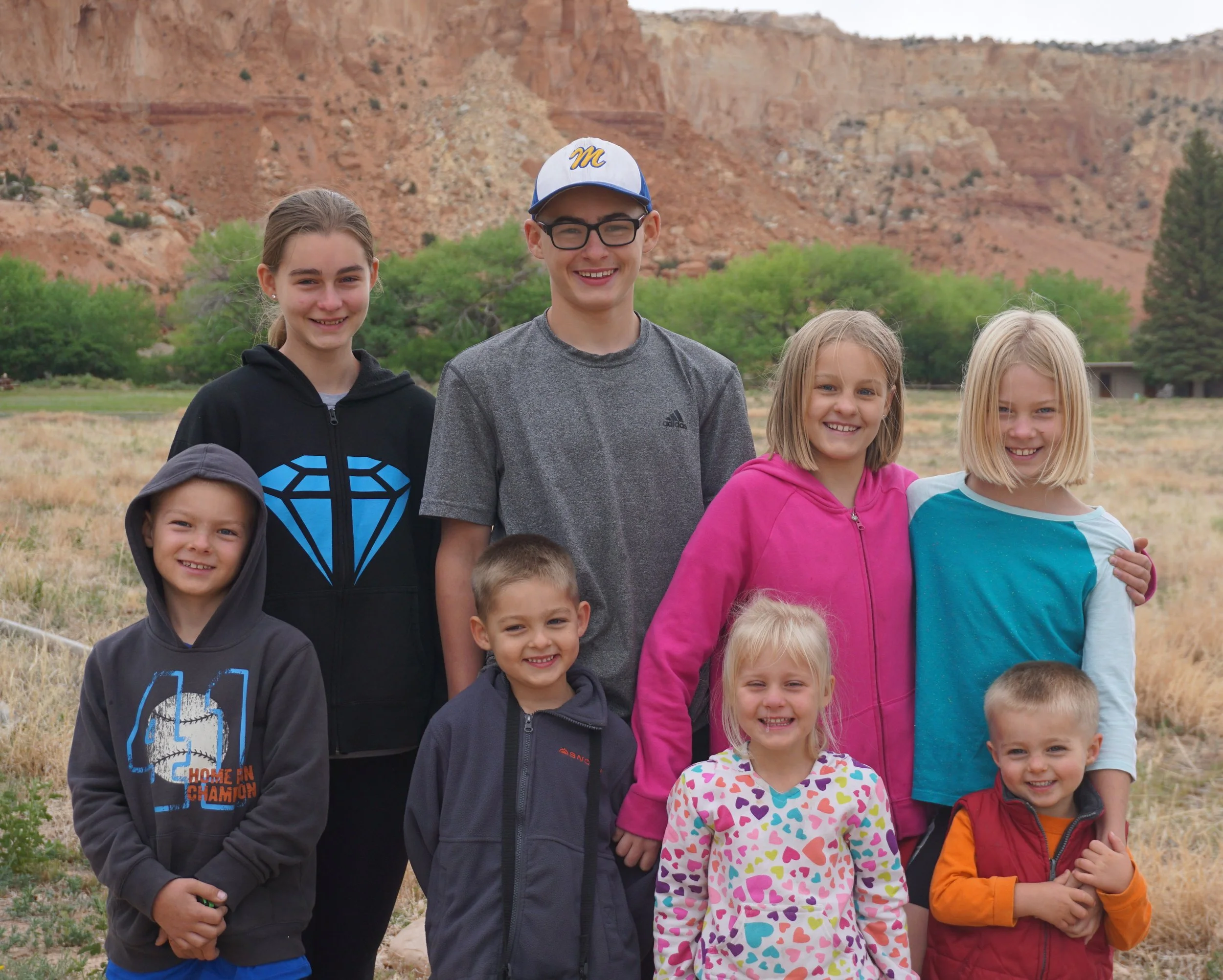I am blessed to have so many special people in my life. My sister (Sarah) and her husband (Anders) are two such people. At age 22, they might have been two of the least likely people you could have imagined to be where they are today: homeschool parents of eight kids. Both coming from families of four, Sarah was enrolled in medical school on the way to becoming a doctor. It seemed as likely they would hit the lottery than they would choose the path to become the family they have become. I had the opportunity to sit down with Sarah and Anders and listen to the story of how God led them to choose to have eight kids.
I hope as you read this you might consider where God is calling you and where he is asking you to trust him in your life right now. Where is he inviting you into deeper faith?
Tell me the story of how you two fell in love.
Anders (A): It all started at your (John’s) wedding. We had a lot of time to talk and have fun together. We clicked and deeper conversations were natural. I left that week feeling like Sarah was somebody I really wanted to get to know more. We emailed for six months until I graduated. Then, I moved out to Phoenix to be near you and Angel. I was shy and didn’t want to put any pressure on Sarah, but I wanted to be closer to her. We got to spend a lot of time together that summer and I got to know her really well.
Right before she went back to Stanford in the fall, we finally had our first date.














